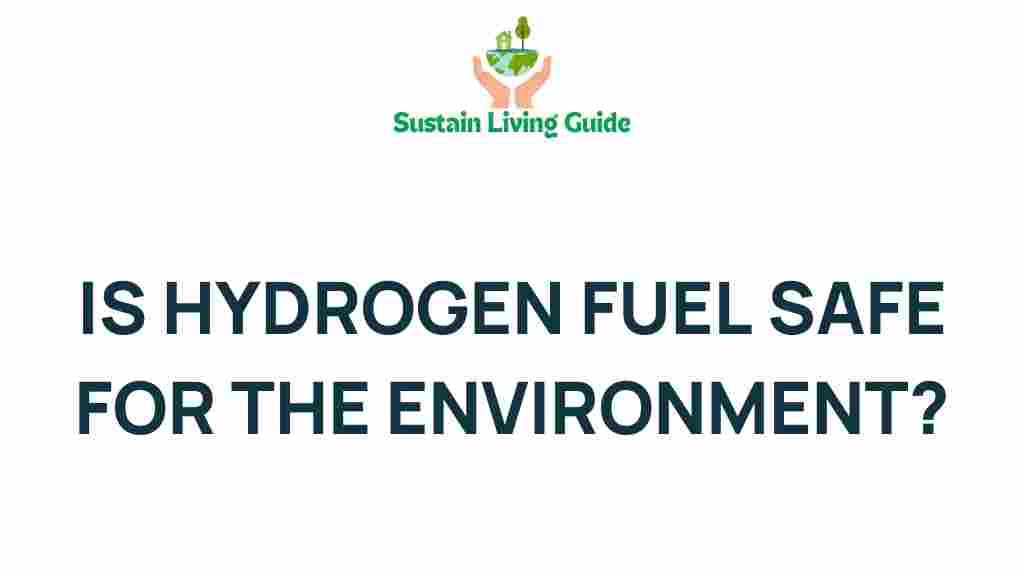Is Hydrogen Fuel the Future of Eco-Friendly Energy Solutions?
As the world grapples with climate change and seeks sustainable energy solutions, the conversation around hydrogen fuel has gained momentum. This clean energy source holds the potential to revolutionize how we power our vehicles, homes, and industries. In this article, we will explore the benefits, challenges, and future of hydrogen fuel, while examining its role in the broader context of eco-friendly energy solutions.
What is Hydrogen Fuel?
Hydrogen fuel is a clean energy carrier that can be used to power fuel cells, which convert hydrogen into electricity. The only byproduct of this process is water, making it an incredibly eco-friendly alternative to fossil fuels. Hydrogen can be produced from various sources, including:
- Water: Through a process called electrolysis, hydrogen can be extracted from water using electricity.
- Natural Gas: A common method, known as steam methane reforming, involves extracting hydrogen from natural gas.
- Biomass: Organic materials can also be used to produce hydrogen through gasification or fermentation.
- Renewable Sources: Wind, solar, and hydroelectric power can be harnessed to produce hydrogen, making it more sustainable.
The Benefits of Hydrogen Fuel
Hydrogen fuel offers numerous advantages that make it an attractive option for eco-friendly energy solutions:
1. Zero Emissions
One of the most significant benefits of hydrogen fuel is its zero-emission profile. When hydrogen is used in fuel cells, the only byproduct is water vapor, helping to reduce greenhouse gas emissions and air pollution.
2. Renewable Resource
Hydrogen can be produced from various renewable sources, making it a sustainable energy option. As technology advances, the efficiency and cost-effectiveness of producing hydrogen from renewable energy will continue to improve.
3. Versatility
Hydrogen fuel can be used across multiple sectors, including:
- Transportation (fuel cell vehicles)
- Power generation (fuel cells in power plants)
- Industrial processes (hydrogen as a feedstock)
4. Energy Storage
Hydrogen can serve as a form of energy storage, allowing excess electricity generated from renewable sources to be stored and used later. This is particularly valuable for balancing supply and demand in the energy grid.
Challenges Facing Hydrogen Fuel
Despite its many advantages, hydrogen fuel also faces several challenges that must be addressed for it to become a mainstream energy solution:
1. Production Costs
The cost of producing hydrogen, particularly through renewable methods, remains relatively high compared to fossil fuels. As technology and infrastructure improve, these costs are expected to decrease.
2. Infrastructure Development
Currently, the infrastructure for hydrogen fuel is limited, with few refueling stations available for fuel cell vehicles. Investment in infrastructure is necessary to support widespread adoption.
3. Storage and Transportation
Hydrogen is the smallest and lightest molecule, making it challenging to store and transport. Developing safe and efficient storage methods is crucial for the growth of the hydrogen economy.
4. Public Awareness and Acceptance
There is still a lack of understanding and awareness about hydrogen fuel among the general public. Education and outreach are essential to increase acceptance and drive demand.
Step-by-Step Process: How Hydrogen Fuel is Produced
Producing hydrogen fuel involves a series of steps, which can vary based on the method used. Here’s a general overview of the process:
- Source Selection: Choose a method for hydrogen production, such as electrolysis, steam methane reforming, or biomass gasification.
- Energy Input: For electrolysis, supply electricity from renewable sources (solar, wind) to split water into hydrogen and oxygen.
- Collection: Capture the hydrogen gas produced in a safe and efficient manner.
- Purification: Remove impurities to ensure the hydrogen is of high quality for fuel cell applications.
- Storage: Store the hydrogen in high-pressure tanks or other safe storage methods until it is needed.
Troubleshooting Tips for Hydrogen Fuel Systems
As with any technology, challenges may arise when working with hydrogen fuel systems. Here are some troubleshooting tips:
- Low Efficiency: If a fuel cell system is not operating efficiently, check the hydrogen purity and ensure all components are functioning correctly.
- Leaks: Regularly inspect storage tanks and pipelines for leaks, as hydrogen is highly flammable. Use leak detection methods as needed.
- Fuel Cell Performance: If a fuel cell is underperforming, verify that it is receiving an adequate supply of hydrogen and that temperature and pressure are within optimal ranges.
- System Maintenance: Regularly maintain and service the system to prevent issues related to wear and tear.
The Future of Hydrogen Fuel
As the world transitions towards cleaner energy solutions, hydrogen fuel is poised to play a significant role. Key factors influencing its future include:
1. Policy and Regulation
Government policies promoting clean energy adoption and incentivizing hydrogen production and infrastructure development will be crucial for the growth of hydrogen fuel.
2. Technological Advancements
Innovations in hydrogen production, storage, and fuel cell technology are expected to enhance efficiency and reduce costs.
3. Public-Private Partnerships
Collaboration between governments, industries, and research institutions will drive investment and development in hydrogen technology.
4. Global Market Demand
As more countries commit to reducing carbon emissions, the demand for hydrogen fuel is likely to grow, leading to increased production and infrastructure development.
Conclusion
Hydrogen fuel holds immense promise as a key player in the future of eco-friendly energy solutions. With its zero-emission profile, versatility, and renewable potential, it offers a compelling alternative to fossil fuels. However, challenges such as production costs, infrastructure, and public awareness must be addressed for widespread adoption. As we look to the future, ongoing advancements in technology and supportive policies will be essential in realizing the full potential of hydrogen fuel.
For more information on hydrogen energy solutions, visit the International Hydrogen Energy Association. To explore the latest technologies and developments in this field, check out Hydrogen Fuel News.
This article is in the category Energy and created by SustainLivingGuide Team
